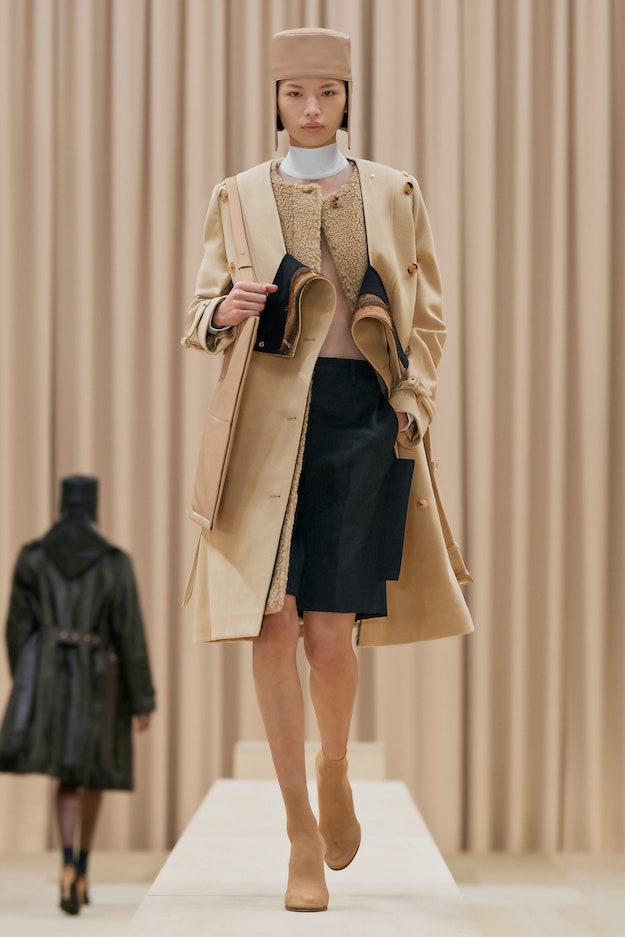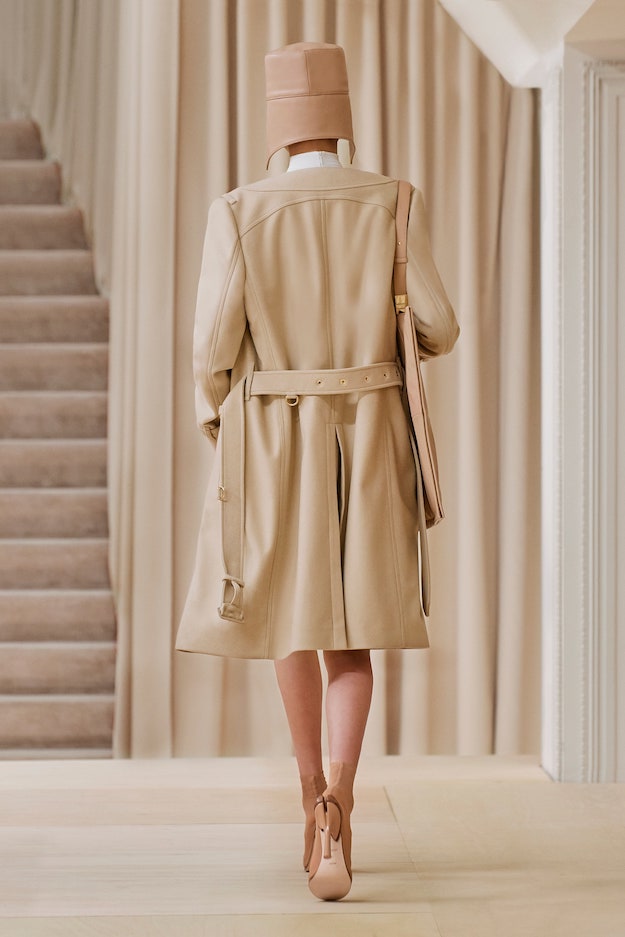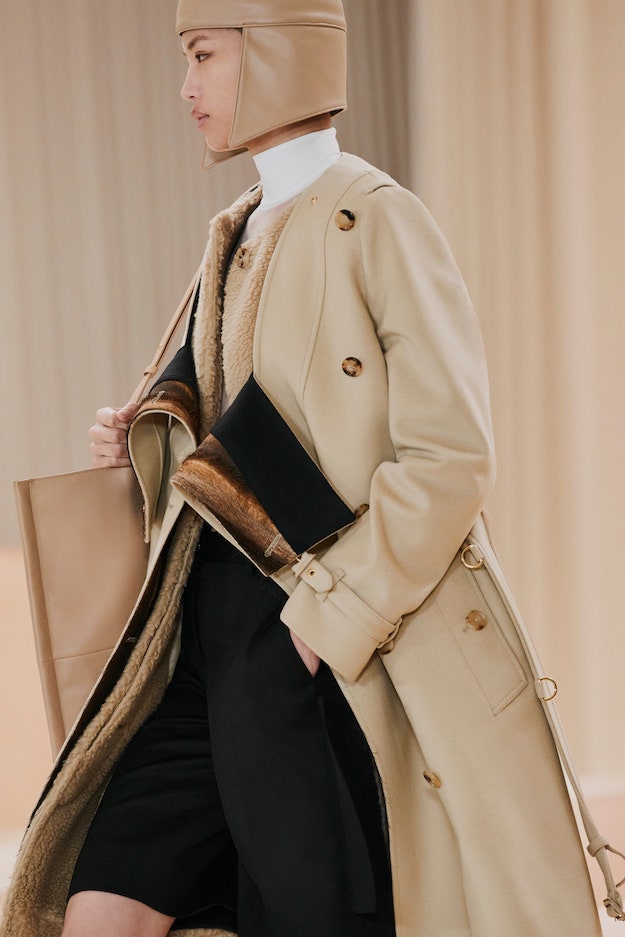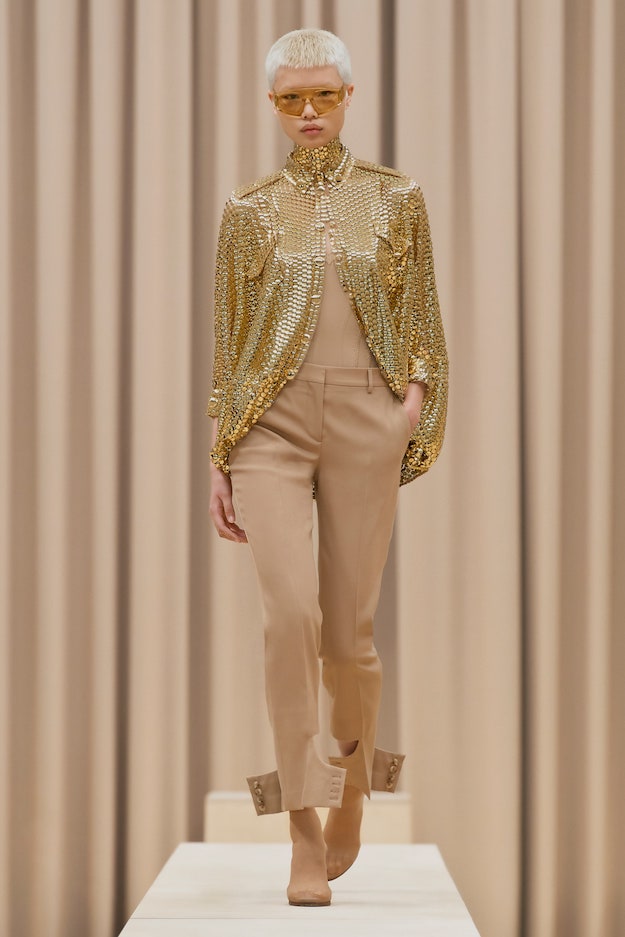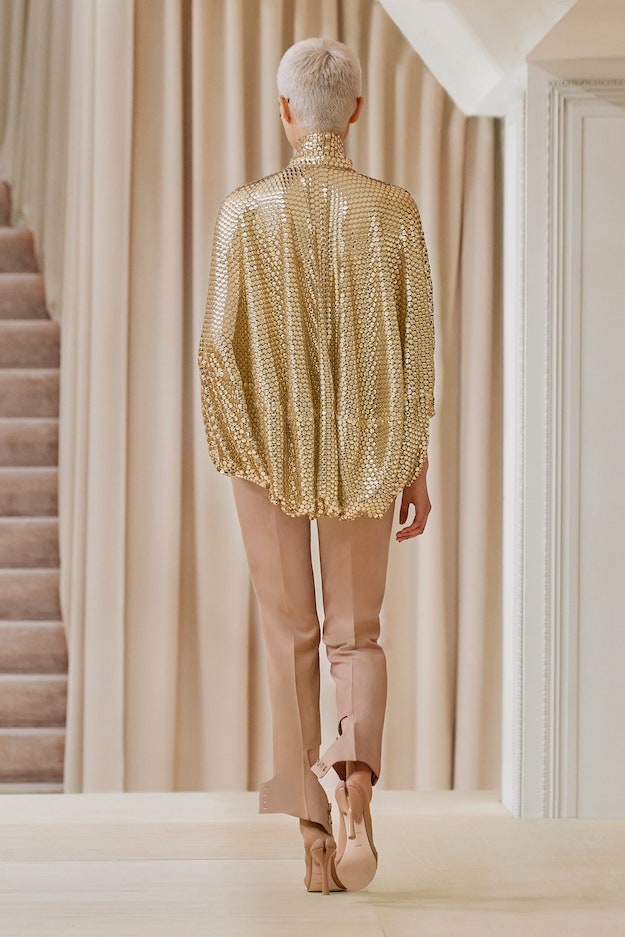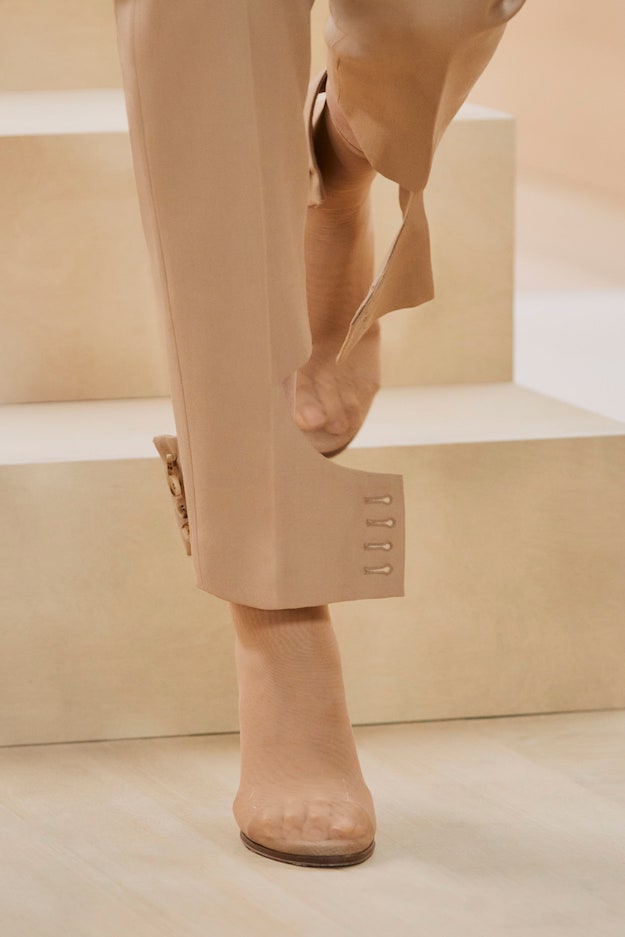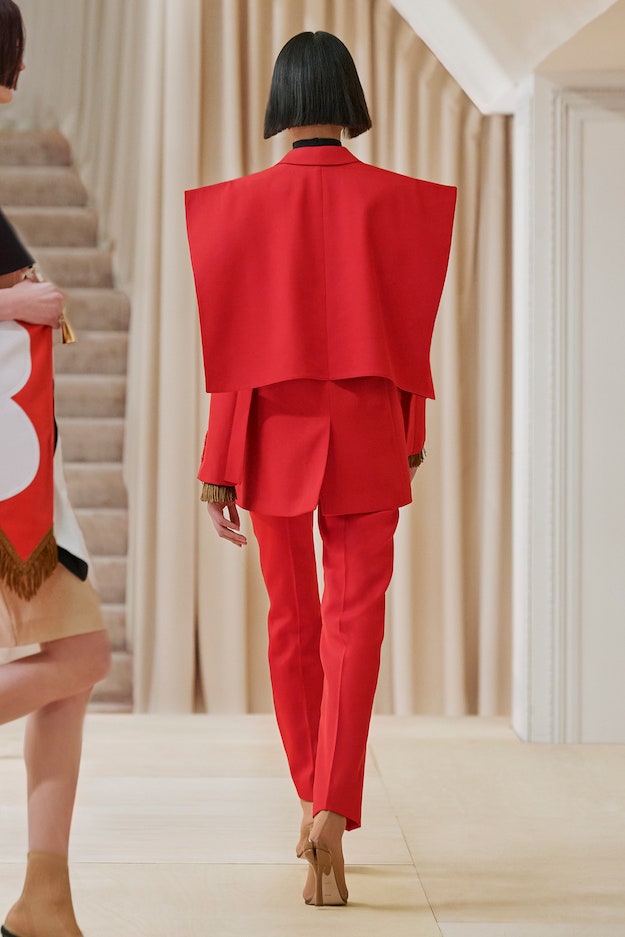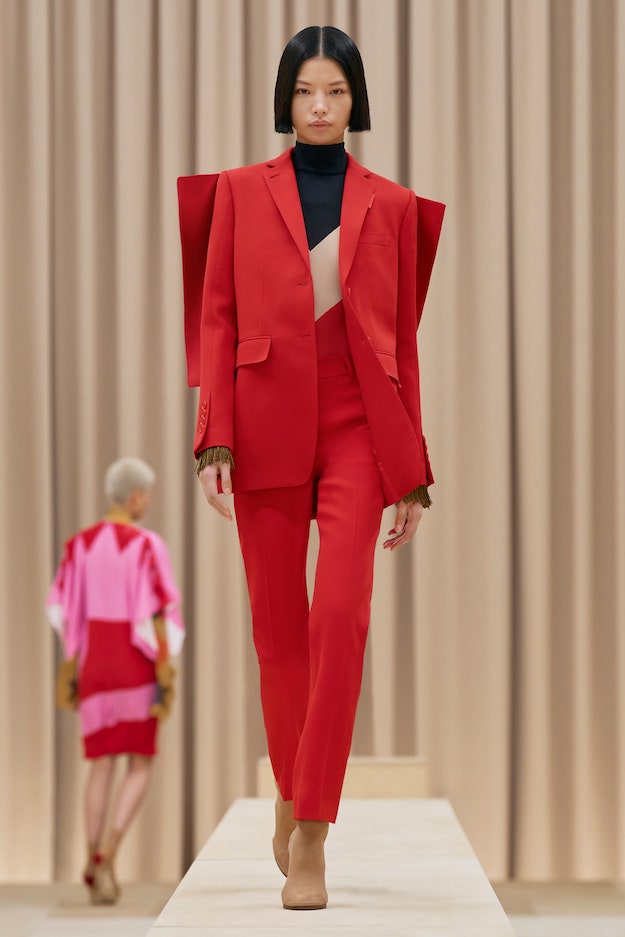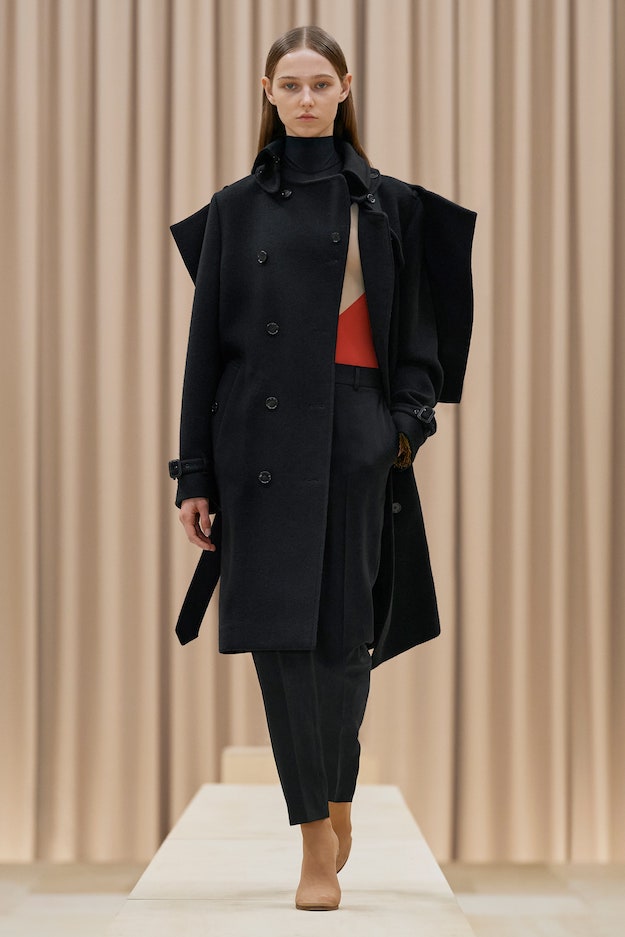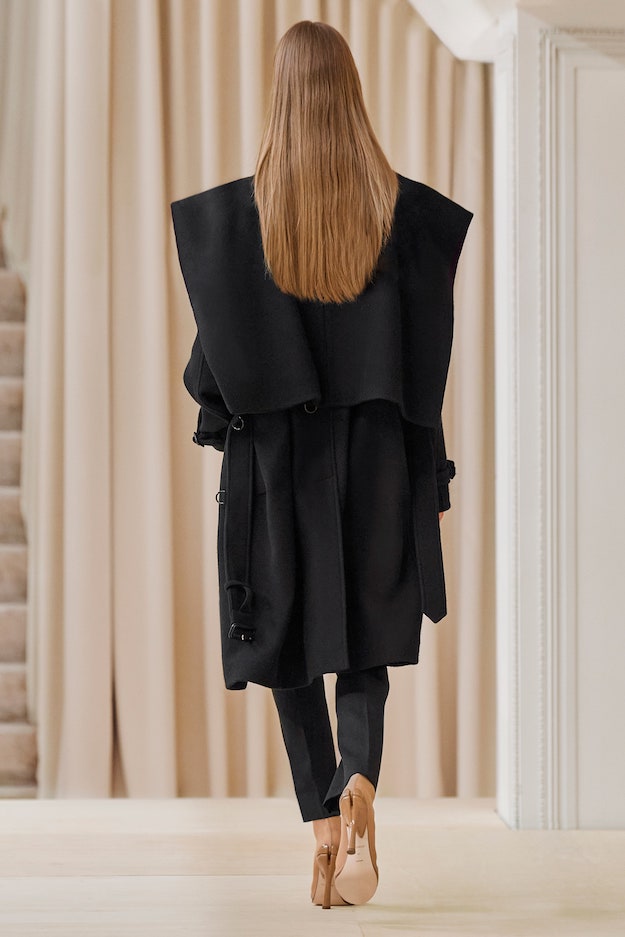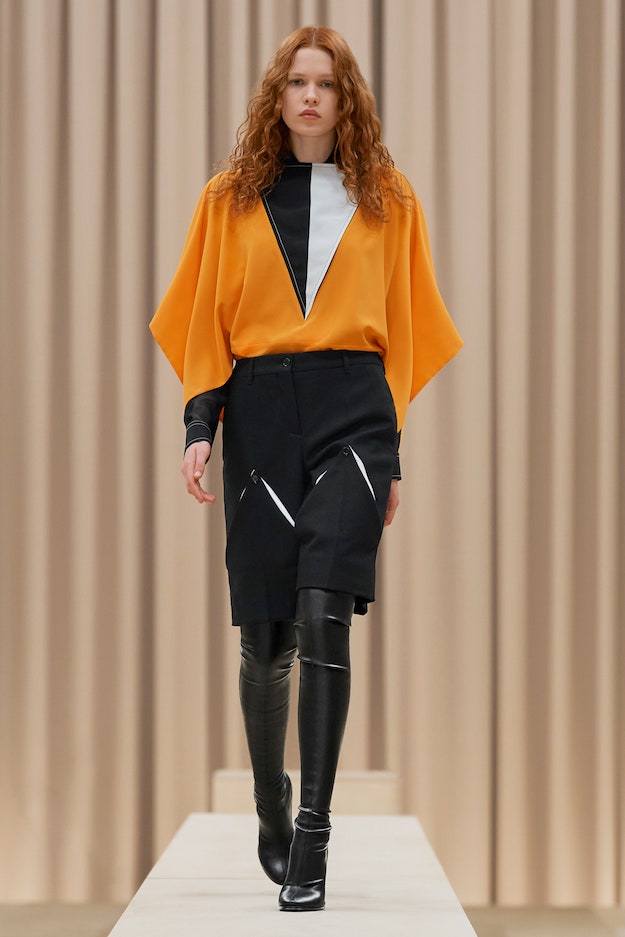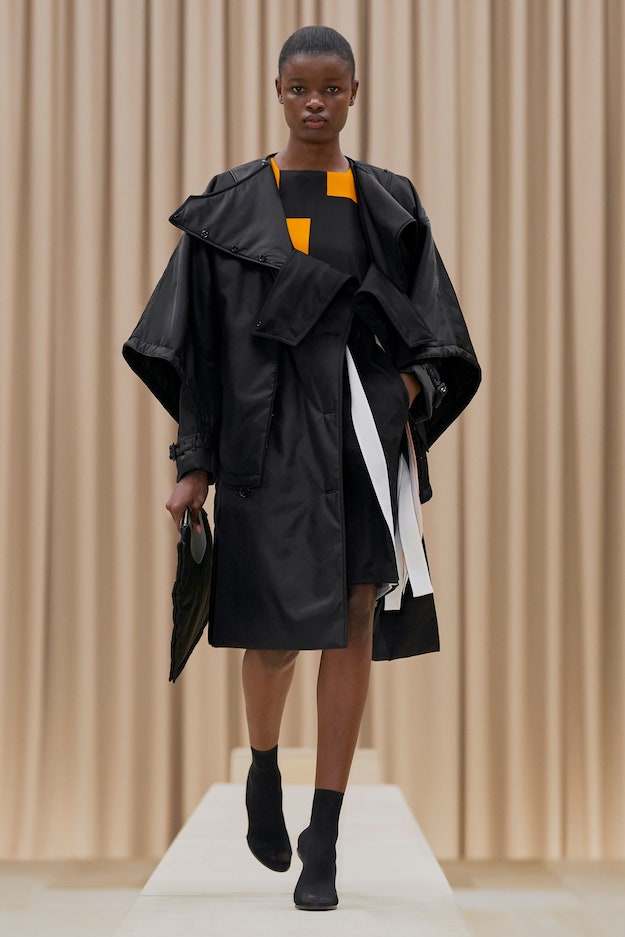Scribbled across the back of the T-shirt Riccardo Tisci wore to take his virtual bow were the words: Don’t believe everything you think. Perhaps more than he realized, they summarized a collection driven by instinct rather than method. Since Tisci arrived at Burberry nearly three years ago, he has endeavored to interpret and celebrate an esoteric Britishness that—take it from a fellow foreigner—will always be better understood by native Brits. On a video call from Lake Como, where he was visiting his mother, he cited his love of British eccentricity as a source of inspiration. But today’s show largely felt as if Tisci had departed his Anglophile approach in favor of what he knows best: his own inclination.
“Re-thinking a lot” was how he described his pandemic experience. “I had time to slow down. The fashion business is very fast. It’s a huge company. I was ticking boxes, and I was like, ‘Okay, stop.’ ” Rather than over-saturating his runway with multiple market categories and menswear, Tisci presented a focused women’s collection rooted in the ferocious and sensual but viable glamour that has defined his career. “Slowly we’ve built an identity, and I realized my identity was very strong within the label,” he said, evaluating his tenure at the house. “It’s the most free collection I’ve done at Burberry.”
Tisci expressed it through references to the clothes historically worn in nature, most specifically around the turn of the last century. “Through history, the costume of people going to the forest has been very ‘child-designed’: a naïve outline, but made much more sensual,” he said, explaining his approach to the idea. The ease and adaptability represented by those garments (in an age when you couldn’t have applied those words to many wardrobes) inspired dresses constructed as if from squares sewn together, and transformative takes on tailoring which could be de- and reconstructed by the wearer using closing techniques. There was an arts-and-craftsy character to the collection, backed up by manipulated flag and astronomy motifs and the lashings of eco faux-fur that drove home Tisci’s nature-centric message.
His post-pandemic mindset had discovered a kindred spirit in the naturalist movements of the late 19th and early 20th centuries, which informed the collection. Fueled by the malaise of the fin-de-siècle, it was a time when instinct and whim were put above rationalism and materialism, when artists felt the call of the wild, and sought to de-program themselves from the rules of society. Sound familiar? Before the show, Burberry released a video of a British-ly diverse crew of women reflecting on the meaning of femininity now. And the spoken-word show-opener by the British performer Shygirl, who starred as “Mother Nature,” was an homage to the waves of liberation and celebrations of identity washing over contemporary culture today.
“It’s very sexy, I think, but without being vulgar. Femininity is something I really wanted to achieve at Burberry when I arrived, because it’s a very masculine company,” Tisci said, referring to the trench-tastic roots of the house. As with the progressive young generations to which his videos paid tribute, authenticity is key. For Burberry, it’s found in a menswear-y character that its female clientele probably expects. For Tisci, it’s the sensual and almost athletic glitz in which he excels. This collection showed that the two can co-exist on the same runway. As he said, “I feel like I’m starting to see my vocabulary at Burberry.”
(Vogue.com)
